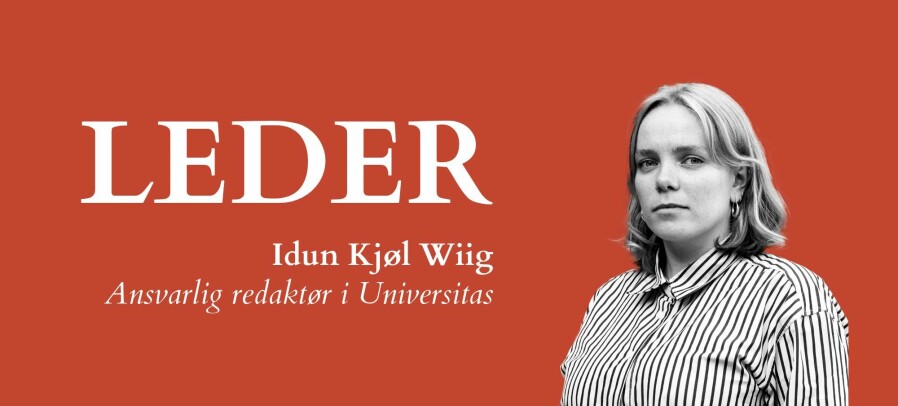
Rejecting UiO
Rita Augestad Knudsen seeks active fellow students, larger professional environment and better feedback. Consequently, she passes the University of Oslo (UiO) over for an elite university in London.
«My impression is that students earning good marks would rather go abroad for their Master’s degrees,» Rita Augestad Knudsen says. She knows many fellow students who have chosen to go abroad for the remains of their education because they feel that the level at UiO is unsatisfactory. Augestad Knudsen has earned a 4-year Bachelor’s degree from UiO herself, but she is now going to the elite university London School of Economics (LSE) for her Master’s in International Studies.
«They are offering more individual and encouraging feedback. Higher requirements have to be met by students, and there is room for sharing your thoughts in a larger professional environment.»
Lacking Motivation
Augestad Knudsen has chosen to go in-depth concerning the areas of Eastern Europe and the Balkans. She explains that she never considered Oslo as a serious alternative for her Master’s.
«For such a narrow field it adds to the temptation of going abroad. At LSE I know that it is hard to get in, and that all the students are good at what they do. It is an environment in which achievement is essential.»
And precisely her desire of larger student involvement has been an important factor in choosing LSE:
«It is my experience that students are less involved at UiO compared to renowned universities abroad where requirements as to average marks apply in order to be accepted.»
Growing Trend
According to figures from the Norwegian State Educational Loan Fund there has, over the last couple of years, been an increase in the number of students who decide to do their postgraduate studies abroad. For this upcoming academic year, there are 5,644 recipients of grants from the Norwegian State Educational Loan Fund for Master’s degrees abroad. This constitutes an increase of 10 per cent since 2001. For Ph.D. students, there is an increase of almost 15 per cent.
Sub-Dean Tor Egil Førland at the Faculty of Humanities (HF) at UiO does not fear an exodus of brains to elite universities abroad. He feels that courses available at his Faculty are highly satisfactory:
«I think you have to search long and well to find students who are so clever that they cannot learn more. There are no limits as to how good a dissertation can be.»
Being Clever Does Not Cut It
Jon Pedersen, chief researcher with Fafo Institute for Applied International Studies, holds that graduates from elite universities abroad are not first priority compared to students from Norwegian universities. Pedersen is by and large looking for applicants who have done more than just studying:
«First-class marks and finishing according to normal schedule is by far not the most important. Applicants should preferably speak foreign languages, have working experience or have experience from pro-bono work.»
However, Pedersen also realises weaknesses with universities in this country. He thinks that students from Norwegian universities over the last few years have developed poorer writing abilities and common knowledge. In accordance with Fafo needs, Pedersen is therefore positive towards an elitist turn also at universities around the country:
«Universities have to satisfy many areas in society. However, as chief researcher, I am preoccupied with getting the best people available.»
































